What is Bee Pollen?
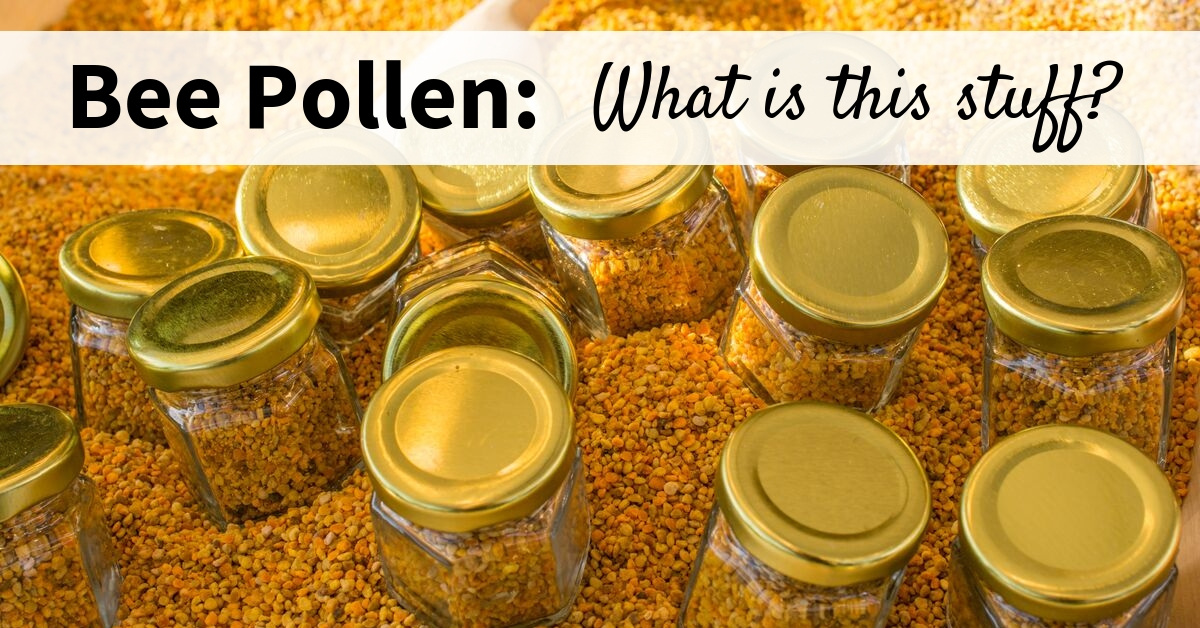
by Angela Van Alten, Nutritionist and Beekeeper's Daughter

So what is bee pollen? Bee Pollen is orange/yellow in color and it comes out of the hive in little granules or pellets.
It comes from the pollen nectar from the flowers (the dusty stuff that you see on blossoms in the spring). Pollen is the male seed of flowers. It is required for the fertilization of the plant.
Amino Acids in Bee Pollen
So what exactly is bee pollen? What makes it so darn healthy for you? Well, with modern day science, we are now able to analyze the chemical components of bee pollen to determine exactly what makes it so special and why people seem to respond so well to it.
We know that Bee Pollen is extremely nutrient dense and contains all 8 Essentials Amino Acids and the 2 Non-Essentials Amino Acids that must be obtained from your diet.
Dairy, such as milk, yogurt and cheese, all meats, hemp and fish are the other food sources that contain all of the amino acids.
At 25% protein, bee pollen is extremely low calorie with only 40 calories per tablespoon.
I often speak to people on high protein diets - athletes and low carb dieters are the two most prevalent. I tell them bee pollen is a perfect food for them. There is no other protein source that has the nutrient content that bee pollen possesses.
- Arginine: 4.4 - 5.7%
- Histadine: 2.0 - 3.5%
- Isoleucine: 4.5 - 5.8%
- Leucine: 6.7 - 7.5%
- Lycine: 5.9 - 7.0%
- Methionine: 1.2 - 2.4%
- Phenylalanine: 3.7 - 4.4%
- Threonine: 2.3 - 4.0%
- Tryptophan: 1.2 - 1.6%
- Valine: 5.5 - 6.0%
Vitamin and Minerals in Bee Pollen
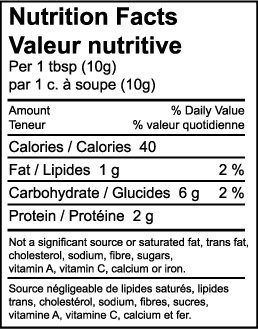
In addition to its high protein content, bee pollen contains over a dozen vitamins, 28 minerals, 11 enzymes and co-enzymes, and 14 fatty acids.
It truly is Mother Nature's multi-vitamin!
While I agree that it is important to supplement with a high potency, gender specific multi-vitamin and mineral supplement every day, I believe it is even more important to include as many phyto-nutrients and phyto-chemicals as possible through the diet.
Scientists simply are not able to replicate all of the healthy compounds found in nature. There are those that claim we haven't even identified all of the substances in bee pollen yet!
To further illustrate my point, let me share this with you. A study was recently published in a reputable journal showing how synthetic, man made beta carotene can actually increase oxidation in the lungs of smokers.
Beta Carotene is supposed to be an anti-oxidant, not a pro-oxidant!?
My point is this - compliment your multi-vitamin and mineral supplement with a tablespoon or two a day of bee pollen to make sure you are getting many of the amazing nutrients that nature made for us. In fact, I bet that you'll get better absorbtion and assimilation of your vitamins and minerals by doing so!
That means more vitamins in your system and less in the toilet!
Other Substances Isolated in Bee Pollen
Bee pollen also contains the following phyto-chemicals or plant nutrients. These are lesser known nutrients or vitamin like substances that you likely haven't heard of. But don't let this discount the health benefits of these compounds. Quercetin for example, is a powerful anti-histamine compound. And lycopene is very effective for prostate issues.
- Flaxoxanthine (this helps give pollen its golden yellow color)
- Xanthophyll epixide
- Carotene
- Epiphasic carotenoids
- Flavonoids,
- Ethylic ether,
- Quercetin (bioflavonoid),
- Zeaxathin (is a strong antioxidant substance)
- and Lycopene (which is probably why pollen is proving very effective for prostate issues)
|
|
|


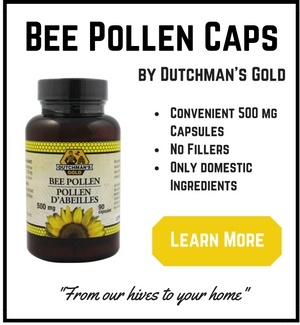
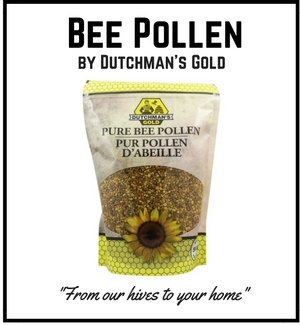
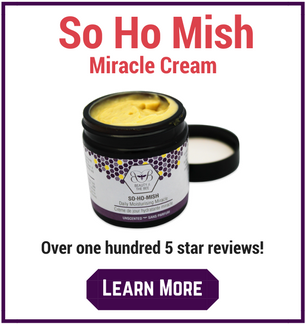
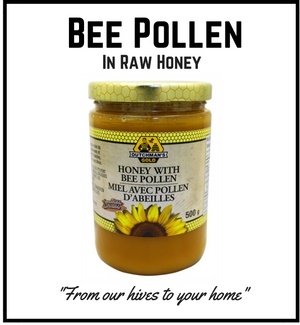






New! Comments
Do you have something to say about what you just read! Leave me a comment in the box below. I'd love to hear from you!